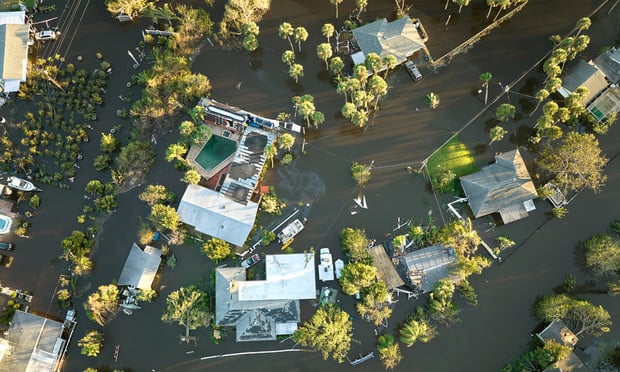Imagine that one of your customers walks into your agency looking for insurance for his new travel trailer. You pull a quick quote for an endorsement on his existing car insurance policy. Pleased with the low price, your customer buys and goes on his way.
Months later, you learn that your customer's RV was totaled. And that is not the only bad news: Because the RV was simply added as an endorsement onto his auto policy — and was not covered by a specialized RV policy — the insurance check will not even cover the amount he still owes on his loan.
While it can be quick, easy, and sometimes cost effective to add an RV to an existing auto policy, several incidents are not fully covered unless your customer has specialized RV insurance. Here is what you need to know about RV insurance and how you can grow your RV business and protect yourself in the process.
What's Covered and What's Not
Knowing what is covered and what is not can help you recommend the type of policy that best fits your customer's needs. A car policy does not cover a lot of things that can go wrong with an RV. After all, these vehicles are much more than a car — they are houses on wheels. Your customers might need specialized RV insurance that covers more than what a standard car insurance policy is designed to do.
For example, if an RV is damaged during a trip, an auto policy could leave your customers out in the cold. But specialized RV coverages would pay up to $2,000 for lodging and transportation, so they could still enjoy their vacation.
Similarly, expensive items like outdoor gear, laptops, or other electronics stolen from inside an RV would be covered by an RV policy, but typically would not be covered by an auto policy.
Specialized RV coverage can also protect against depreciation if an RV is totaled. A typical car insurance policy would only pay the RV's actual cash value, but an RV “agreed value” type of policy would pay the amount that your customer and the insurance company agreed the RV was worth when he bought the policy, regardless of the RV's value at the time of the loss.
Coverages, Costs, and Service
A specialized RV policy does not have to break the bank. The difference in price between a specialized RV policy and an auto endorsement may be minimal, but the difference in coverage is significant.
For example, if an RV breaks down, towing it to a repair facility requires specialized — and more expensive — equipment. An auto policy might not cover the full towing cost. With dedicated RV coverage, roadside assistance claims like these normally are fully covered.
Additional coverage options are available. For example, in Florida, Progressive offers:
?Total Loss Replacement — Replaces a totaled RV with a new model of similar make and quality.
?Vacation Liability — Pays up to the specified limits for bodily injury and property damage for which a customer is legally responsible as a result of an accident that occurs while the RV is used as a temporary vacation residence.
?Full Timer's Coverage — Provides homeowners'-like coverage for individuals who use their RVs as a primary residence.
?Fire Department Service Fee — Pays up to $1,000 in fire department charges when the department is called to save or to protect an insured RV.
?Pet Injury Coverage — Pays up to $500 if a pet sustains injury in an RV loss that is covered by comprehensive and collision insurance.
?Disappearing Deductibles — Reduces the deductible for each year a customer goes without a claim.
In the unfortunate event that your customer needs to use these coverages, a specialty RV insurer has a claim staff that knows RVs inside and out — unlike an auto-only carrier whose staff work mostly with cars.
Market and Cross-Selling Opportunities
Market opportunities do exist, even in today's economy. According to the Recreation Vehicle Industry Association, more than 8.2 million American households own an RV, and more than 135,000 RVs are registered with the Florida Department of Highway Safety and Motor Vehicles.
Ask your customers if they own an RV, and follow up by asking them about other “toys” they might have. RVers tend to own other types of vehicles like motorcycles, boats, dirt bikes, and ATVs. You can cross-sell and grow your business.
Quoting a specialized RV policy is easy. Some carriers have extensive make-and- model pick lists and “help text” available to answer any questions you might have.
Protect Your Customers and Yourself
It is best to present both options — a specialized RV policy and a personal auto endorsement — to your customers so they can make an informed decision. By discussing the options with them, you will protect yourself in the process. Since most auto policies do not offer the same level of coverage for motor homes and travel trailers that a specialized policy does, if your RV customer suffers a loss that is not covered, he may take legal action against you and your agency. The number one cause of agent E&O claims is failure to offer the proper coverage.
By educating both yourself and your customers about RV insurance, you will be able to protect your business and sell more policies — and your customers will be protected from the unexpected.
Cathy Pelfrey is an RV insurance expert with Progressive. More information about Progressive's RV coverages is available at www.progressiveagent.com/rv/rv-insurance.aspx.
Want to continue reading?
Become a Free PropertyCasualty360 Digital Reader
Your access to unlimited PropertyCasualty360 content isn’t changing.
Once you are an ALM digital member, you’ll receive:
- Breaking insurance news and analysis, on-site and via our newsletters and custom alerts
- Weekly Insurance Speak podcast featuring exclusive interviews with industry leaders
- Educational webcasts, white papers, and ebooks from industry thought leaders
- Critical converage of the employee benefits and financial advisory markets on our other ALM sites, BenefitsPRO and ThinkAdvisor
Already have an account? Sign In Now
© 2024 ALM Global, LLC, All Rights Reserved. Request academic re-use from www.copyright.com. All other uses, submit a request to [email protected]. For more information visit Asset & Logo Licensing.








